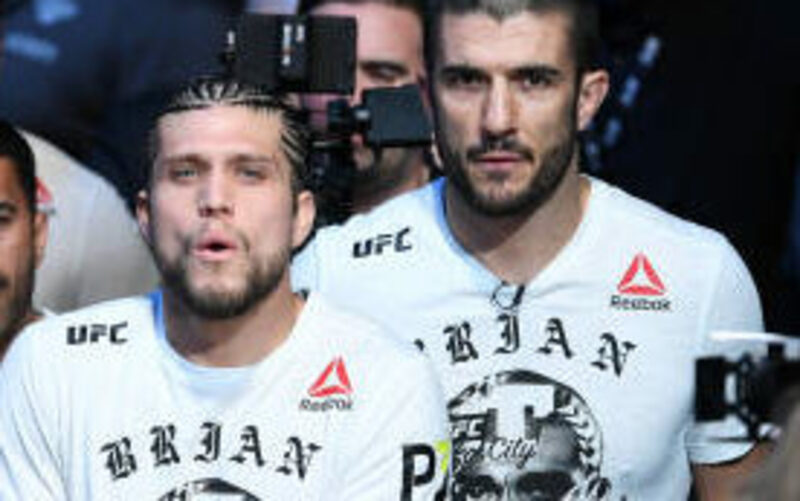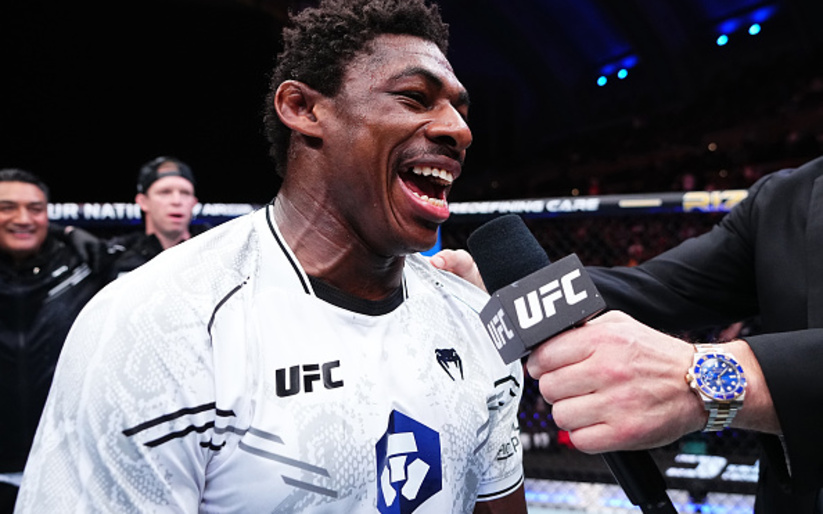Joel Suprenant is a former mixed martial artist who was a large part of the original Team Quest. He previously worked closely with Chael Sonnen as a voice on the podcast ‘You’re Welcome – With Chael Sonnen.’ He contacted MMASucka and asked to share his thoughts regarding UFC 231.
******
In November of 1987, as my father’s time on earth was coming to an end (he was in the final stretch of losing a battle against lung cancer) he wrote down something I often revisit.
“It is a shame you can’t live life backwards.”
My Past
I was a very good high school and college wrestler. I had success in all three wrestling styles (Greco-Roman, folkstyle, and freestyle) but I never achieved anywhere near what I believe I should have. I mention that only as a backdrop. I know a lot about competing.
In the year 2000, Pat Sonnen (Chael Sonnen’s father) provided me with a loan. Working with two former college wrestling brothers, (Matt Lindland and Christopher David Lausche) I used the loan to open a used car dealership in Portland, Oregon.
In early 2001, Randy Couture and Dan Henderson shut down their gym. Dedicated to training, we rolled out some wrestling mats in the back bay of the car dealership. This was basically a huge tin building, but it proved to be a suitable training environment.
Basically, if you had a pair of gloves and a mouthpiece, you could go in the back bay of the dealership and fight 5 days a week. Over time, more and more people began showing up. To name a few, there was Dennis Hallman, Jeff Monson, Chael Sonnen, Robert Follis, Nate Quarry, and myself.
At the end of the day, we were a band of brothers. We fought together, learned from one another and we had each other’s backs. Because we looked out for each other, nobody was ever going to fight to the death. I want you to remember the term ‘fight to the death’ because that is where this article is heading.
The Corner of Dysfunction
Because of social media, we’ve become privier to fighter lifestyles. Admittedly, a lot of what I see makes me want to pound my head into a wall. For example, I have no clue who would think it was a good idea to film someone cutting weight. Then we have fighters jumping from camp to camp and promoting it like it means something. Randy won 8 world titles and he would have won them all training with 4 partners and a heavy bar. It drives me insane how often people miss weight or pull out of fights. The biggest thing that frustrates me in this sport is something I like to call ‘the corner of dysfunction.’
The only job of a corner man during fight week is to be supportive. That includes getting their fighter on weight, letting them know when and where to be, have water for them in between rounds, figure out who is going to talk to the fighter in between rounds, make sure that person is in front of the fighter to give them the correct information, stay out of the way, and most importantly, they need to protect their fighter.
UFC 231
I guarantee that recently at UFC 231, less than 50 percent of all corner teams met the standard I just described. In between every round of Jedrzejczyk vs Shevchenko, Joanna wanted to hear from Mike Brown. She had to turn around and look through the cage to do this. That behavior is unacceptable. That’s her guy. I bet dollars to donuts this took place because of camp politics. Is this the end of the world? No. This is just an example.
The biggest travesty to happen at UFC 231 was in the main event. Specifically, it was in Brian Ortega‘s corner. During fight week on UFC Embedded, every time they did a spot on Brian Ortega, all I ever heard was Rener Gracie talking. Up until last week, I had no idea who he even was. I’m sure he’s probably a great guy, but he was way out of pocket all week.
Willing to Die
As a fan, I love Brian Ortega. But as a human being, I feel compelled to write this article. Somewhere inside that camp the ‘I’m willing to die in the cage’ motto was a camp vernacular. If a fighter wants to use that to get himself on point, okay fine. But the corner can never have that in their head.
Brian Ortega’s nose was broken in the first round. Going into the 4th round, he was able to land punches, but truly only won a 30-second exchange. The reason Max Holloway called out to Joe Rogan that he was going to end it in the 4th round, was because he knew Brian Ortega was gassed out and fighting on instinct.
Drawing a Line in the Sand
Going into the 4th round, Rener should have informed his fighter that he needed to get the fight to the ground. But in the back of his mind, he should have drawn a line in the sand. Rener should have decided to throw in the towel no later than 3 minutes into the 4th round. As bad as this situation is, and as upset as I was as a human being, that is not the main reason I’m writing this article. The fact that Rener did not immediately stop this fight once the 4th round ended is. The doctor had to step in and call it off. Rener was not done taking front and center. First thing Sunday morning, he writes an Instagram post to Brian about how much he loves him and included what was said between them at the hospital.
We often talk about how cutting weight is going to get someone killed. No, I do not believe that. But I do believe a corner man not willing to know his role will. And when that time comes, we’ll wish we had addressed this problem.
It is a shame you can’t live life backwards.
Main Photo
Embed from Getty Images



